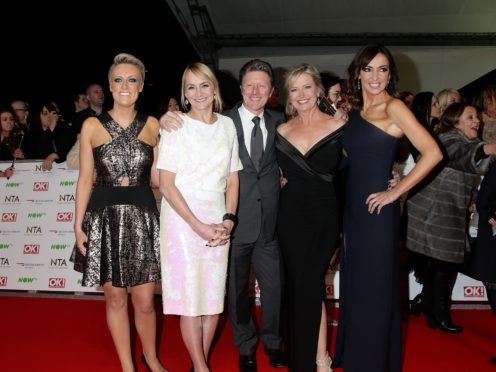BBC Breakfast’s Steph McGovern has said “posh” people earn more than her for doing similar jobs.
The presenter, who is from Middlesbrough in Yorkshire, received a pay rise following the gender pay gap row but told The Sunday Times she has only “just now” reached a six-figure salary and that “posh women … are paid a hell of a lot more than me”.
She said while there is a lot of focus on representing different cultures, there needs to be more emphasis on encouraging working class people into broadcasting.
McGovern, 35, said: “Throughout my career I’ve had to argue about (pay). It’s not as simple as a gender issue, it’s partly down to class.
“There are a lot of women who do a similar job to me who are paid a hell of a lot more … who are a lot posher than me.”
She said: “We concentrate too much on ethnic diversity and not enough on class.
“It’s dead important to represent loads of different cultures. But what the BBC doesn’t do enough of is thinking about getting people from more working-class backgrounds. It’s just posh.”
The presenter said “a lot of people in management are from the same background”.
“We’re talking about: ‘How do we represent more working class people?’ when they themselves are not working class. So how do they know?” she said.
McGovern also recounted an incident where a manager said she was “too common” to be a BBC presenter.
A BBC spokesperson said in a statement that “more than 80% of the BBC’s workforce was educated in state schools and the BBC is more diverse than it has ever been”.
The statement added: “The BBC has a clear commitment to finding and developing new talent.
“We offer hundreds of apprenticeships to ensure the BBC is open to people from all backgrounds and a range of programmes to help people develop their career once they’ve joined, but there’s always more to do and we have an ambitious diversity strategy which sets out our commitment to fully reflecting and representing the whole of the UK.”
McGovern later went on Twitter to further explain her comments, telling her followers: “There’s a lot in the press today about my comments on class. Here is what happened.”
There’s a lot in the press today about my comments on class. Here is what happened: pic.twitter.com/H0rC221BGB
— Steph McGovern (@stephbreakfast) February 25, 2018
Her message said: “I was asked to do an interview with the education editor at the Sunday Times about my work with Young Enterprise; a charity helping young people learn about business which I have been heavily involved with for many years.
“Towards the end of the interview I was asked about BBC pay and culture. I said I thought that the issue wasn’t just about gender, but also about class.
“I also said that we talk a lot in the BBC about how to be better at ethnic diversity, which is important because we’re not good enough at it. However we never talk about class and I suggested that if we did it would make us more diverse in lots of ways, including ethnicity.
“I am in a very fortunate position; I love my job and never dreamed I would have such an amazing career and salary. I grew up in Middlesbrough, a town that is often portrayed in a negative light, but one I love.
“I want the people I grew up with and everyone from a place deemed as ‘poor’ to know that they should never be held back from achieving the best in life and they should be proud of where they’re from. That’s it.”
